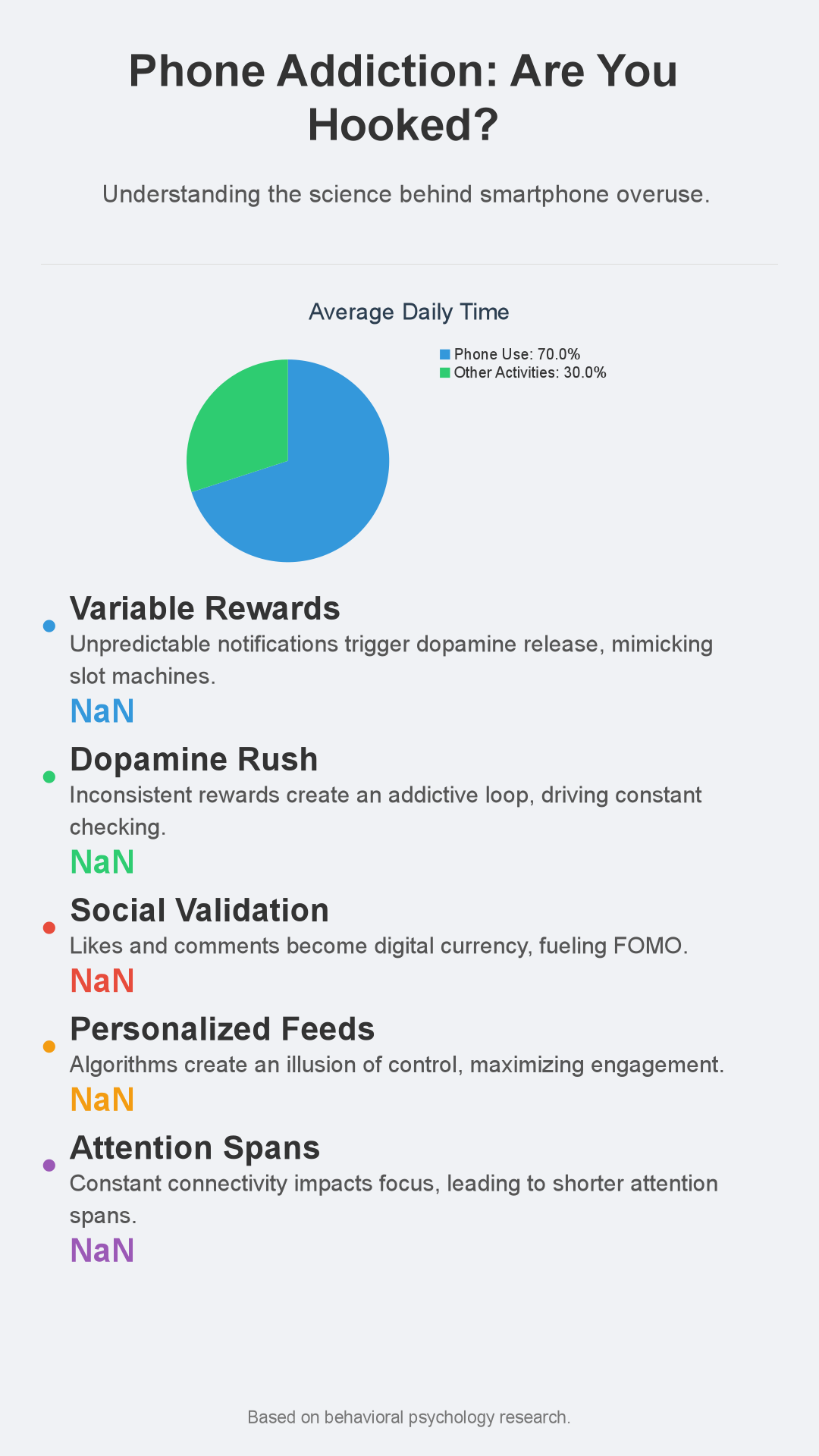
Ever feel like your phone knows you *too* well? This video explores the surprisingly accurate psycho
Do you ever feel like your phone is vying for your attention, constantly demanding a piece of your day? It’s not paranoia; it’s behavioral psychology. Smartphones are expertly designed to keep us hooked, employing surprisingly effective techniques. Let’s explore how.
Before you scroll further, take a moment to consider: how often do you reach for your phone without a specific purpose? This article unveils the science behind our phone’s captivating hold on us.
The Variable-Reward System and the Dopamine Rush
The Science of “Just One More Check”
You check your phone for the time, and twenty minutes later, you’re lost in a meme vortex. This isn’t accidental.
App designers masterfully use the variable-reward system, mirroring slot machines’ unpredictable payouts that keep players hooked. Notifications, likes, and comments—those tantalizing red bubbles—act as intermittent rewards.
Dopamine: The Addictive Neurotransmitter
Each notification triggers a dopamine release, a surge of pleasure. The key is unpredictability. Consistent rewards are boring; inconsistent ones create an addictive loop.
Case in Point: Instagram
Instagram’s algorithm exemplifies this. A flood of likes on one post, then silence on the next—this inconsistency keeps you constantly checking, craving that next dopamine hit. It’s brilliantly manipulative, and undeniably effective.
Social Validation and the Fear of Missing Out (FOMO)
The Primal Urge to Connect
Humans are social creatures; we crave connection and validation. Social media expertly exploits this.
Likes, comments, and shares become digital currency, measuring our perceived worth.
The FOMO Factor
Fear of Missing Out (FOMO) is a powerful driver. The constant stream of updates creates anxiety, a nagging feeling that something crucial is happening—right now—that you’re missing. This anxiety fuels phone usage, creating a cycle of checking and seeking validation.
The Illusion of Control and Personalized Experiences
Algorithms: The Puppet Masters
Algorithms personalize our feeds, showing content designed to maximize engagement. This creates an illusion of control.
We believe *we* choose what we see, but we’re subtly guided along a path designed to keep us hooked.
The Paradox of Choice
Ironically, this hyper-personalization can lead to overwhelm and dissatisfaction. The sheer volume of information and constant comparison to others’ curated online lives can fuel feelings of inadequacy. It’s a double-edged sword.
The Phone as an Extension of Self
Constant Connectivity: A Double-Edged Sword
Smartphones blur the lines between our digital and physical lives.
Their constant accessibility fosters dependence—a feeling of incompleteness without our digital companions.
The Attention Deficit Generation?
This constant accessibility impacts our attention spans. The constant stream of information makes sustained concentration difficult. We’re becoming accustomed to short bursts of information, making deeper focus a challenge.
So, the crucial question remains: how much control do *you* truly have over your phone usage? What steps can you take to regain control and reclaim your time and attention?
Share your thoughts and experiences in the comments below! And please share this post if you found it insightful (or darkly amusing). Because, let’s face it, the truth can be a little unsettling.

Enjoyed this? Check out our https://www.youtube.com/@viral-heartbeat
Enjoyed this? Check out our https://www.youtube.com/@viral-heartbeat



